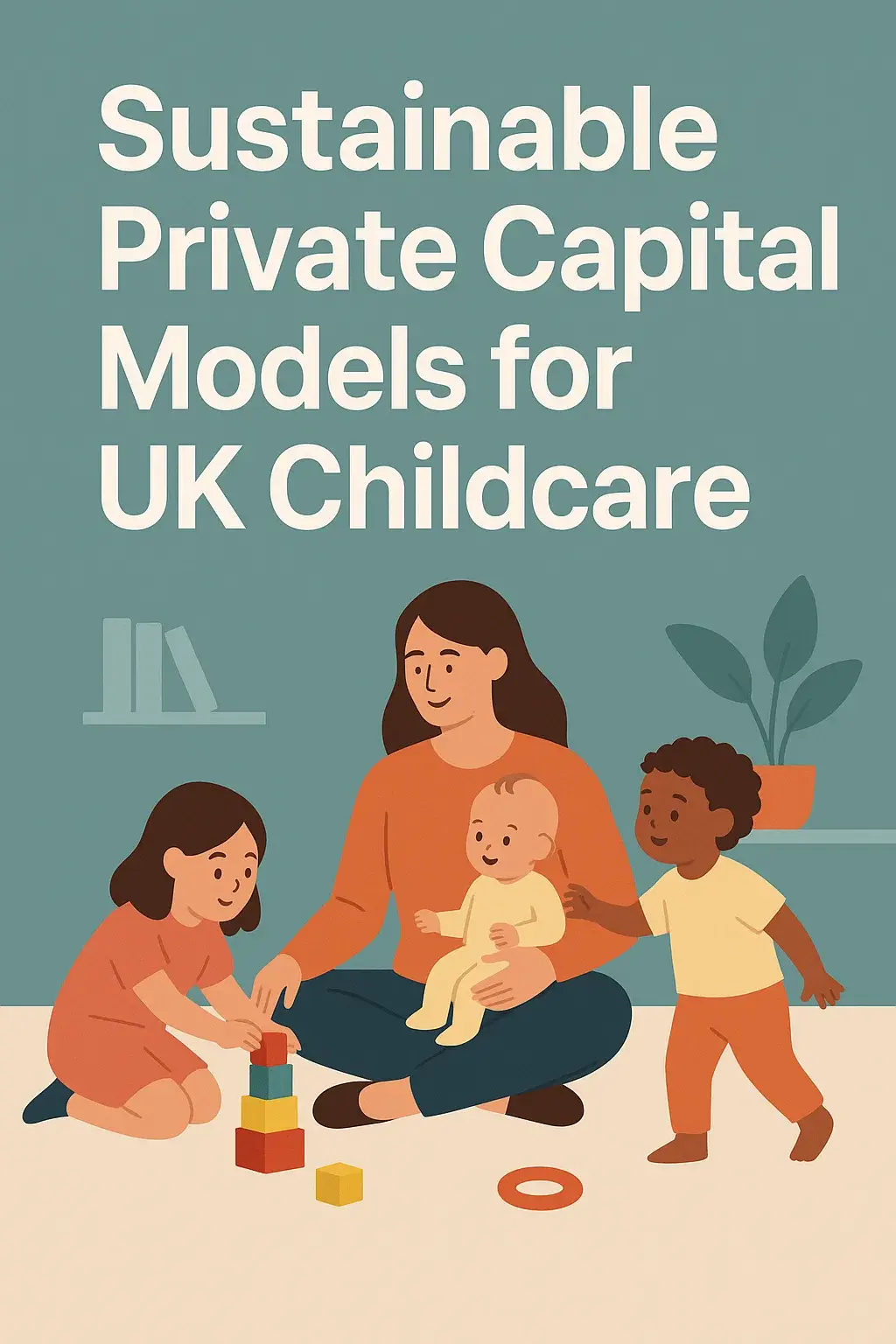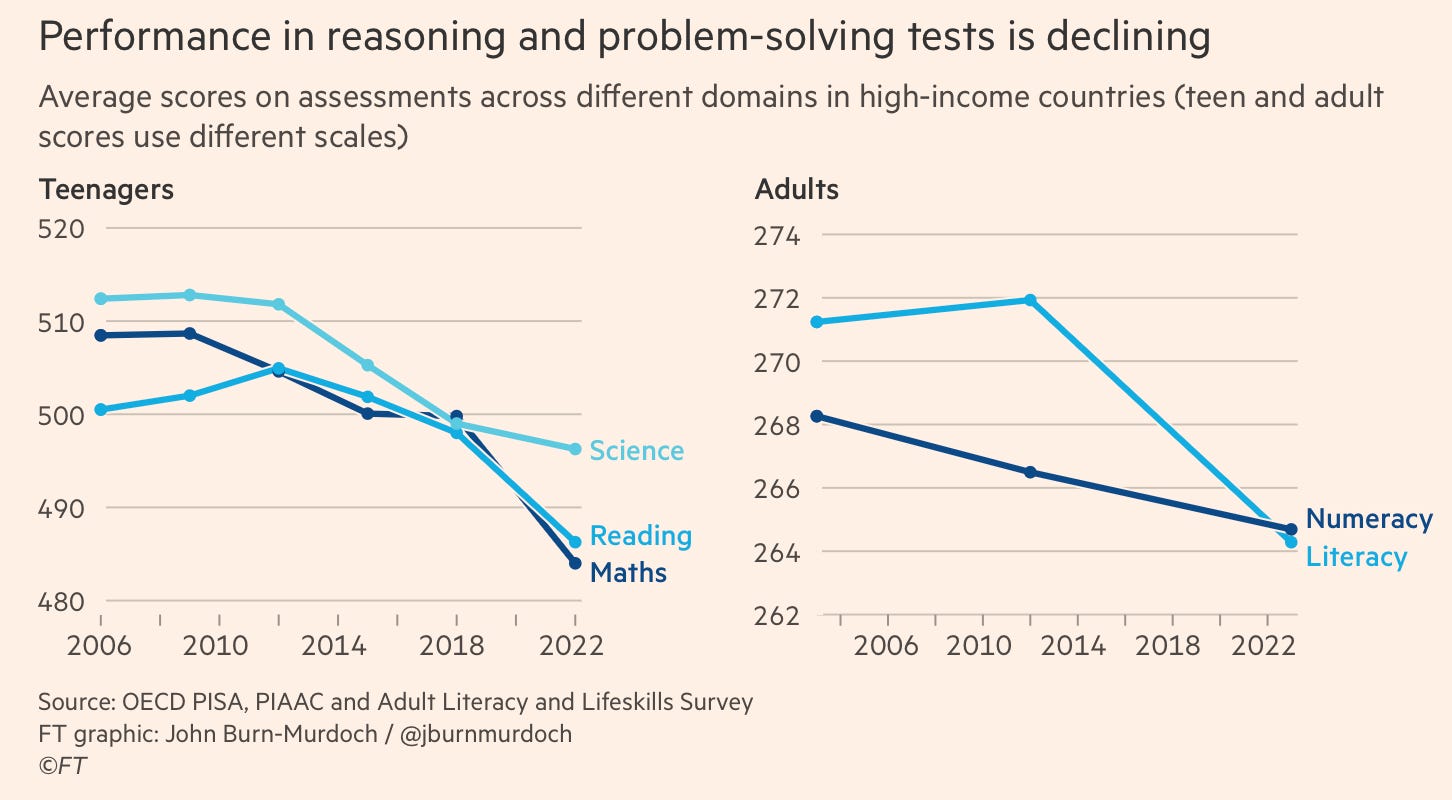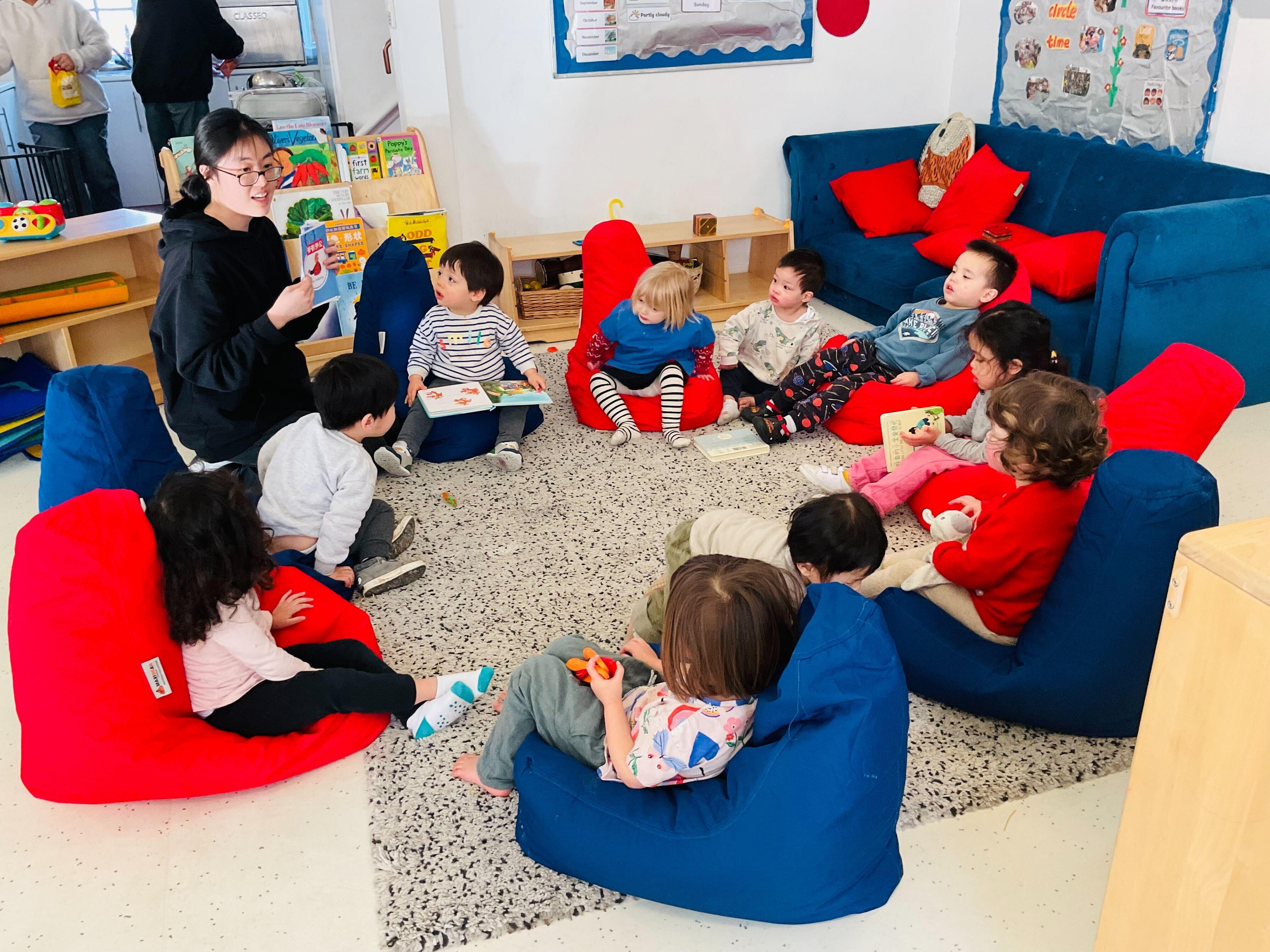Exploring Opportunities in Childcare and Elder Care: A UK Trade Mission to Barbados
Nestled in the vibrant heart of the Caribbean, Barbados stands as a beacon of cultural richness and economic potential. This enchanting island, known for its azure waters and rhythmic calypso beats, recently became the focal point for a significant UK trade mission last month. The mission aimed to delve into the various commercial opportunities that present British businesses - from renewable energy, through to sanitation and waste management; from training through to childcare and elder care, Barbados wanted to position itself as the perfect launchpad for a regional Latam and Caribbean regional strategy in both trade and services.
Hosted by His Majesty's High Commissioner for the East Caribbean, Scott Furssedon Wood, this mission brought together a diverse group of stakeholders. The event was marked by presentations from Invest Barbados, the Caribbean Development Bank, and the UK's own Department of Business and Trade, amongst others. But I was most intrigued by the population statistics and what the government intended to do about it...





The Caribbean Context: Demographics
Before diving into the specifics of the mission, it's essential to grasp the broader Caribbean context. The region is experiencing demographic shifts - some notable data points from the World Bank and IMF pointed to a population that is gradually increasing, but one that will, post 2030, rapidly decline as the birth rate and fertility rates continue to decline as working parents increasingly choose careers over childcare. A rapidly ageing population will see the working age population become the minority in the same year, leaving an fiscal challenge for the authorities to meet, should they fail to address the brain drain and decreasing birth rates. And with debt obligations that see the country have to repay 30 cents in every dollar taxed, there is limited scope for public investment beyond the levels that they already deploy, identifying a need for the private sector to step in, drive the growth and find social solutions for some of the bigger challenges the country faces.
But there was everything to play for - with an economy growing at almost 5% (in comparison to our own lack of growth here in the UK!) and a government that is keen to adopt policies that can drive economic growth, productivity and simplify processes wherever possible, I had a sense that this government actually wanted to work with business to do what it can, as quickly as it can.
Engaging with Barbados Government Representatives
The mission provided ample opportunity to engage with key Barbados Government representatives. These discussions were particularly focused on reversing demographic decline, a challenge that many Caribbean nations are grappling with. The government's strategy revolves around supportive childcare policies, especially tailored for those in tourism and hospitality.
The representatives shared their vision for a comprehensive childcare framework, aiming to attract and retain young families. By doing so, they hope to rejuvenate the workforce, ensuring that Barbados remains competitive on the global stage. Their approach was pragmatic, balancing immediate needs with long-term sustainability.
The Role of Childcare in Economic Growth
Childcare is more than a social service; it's a critical component of economic infrastructure. In Barbados, where tourism and hospitality form the backbone of the economy, accessible and high-quality childcare is essential. And as the population increasingly urbanises, the provision of in-family care, typically being delivered by a grandparent, is becoming increasingly strained. Of the 30 or so private sector operators that I researched, many of them were struggling to meet the need for both affordable pricing and quality / capacity, driving (really insightful) thoughts from regional economists like Mahalia Jackman to set the case for a Universal Childcare policy to be adopted by the government - pushing up the provision of public sector childcare where prices are fixed downwards and subsidised by the state.
Given the lack of fiscal flexibility in the budget and the persistent high levels of debt that the country still needs to service each year (public sector debt is still 115% of GDP, a decrease from the 120% of GDP in 2022, but still....), I'm unsure what levels of appetite PM Mia Mottley has in expanded the base further, even if it is to alleviate some of the longer-term pressures in population decline. And in my experience from over here in the UK, the state doesn't always operate to maximise efficiency of operation. I go back to a sad story in which Hackney Council, where I live, had resolved to close 4 of the boroughs 8 available children's centres and nurseries due to the massive budgetary overspend that they could no longer continue to finance. When I interrogated the books, that was principally down to the fact that they were allocating over 88% of revenue on staffing alone, leaving zero for investment, training, property or other costs that schools have to manage.
So is three a space, in which the private sector can operate in such a way in which costs are not attributed to the individual consumer, but also not (at least directly) to the state?
I believe so. It's called the Workplace nursery and is a model I'm pushing Barbados to Adopt
What is the Workplace Nursery Scheme
Well you can read about it on our blog and website here but it essentially asks private sector employers to directly fund childcare provision for their employees via a network of childcare hubs that can alleviate the costs that they have to bear. Why would an employer do that you ask? Well in the UK at least the financing of a workplace nursery scheme is a corporation tax deductible cost, allowing companies to write off their commitments agains their P&L and provide a public service and, essentially, provide nursery care that is entirely free for their teams to use.
In the UK at least, this is only achieved if the provision is exclusive to the staff of the employer (or series of employers) who sign up to the model but it is one in which, in the case of Barbados, the hospitality and tourism industry, as a lobby, can commit collectively to providing their teams with a like for like benefit that they have just for working in the industry. It means that those employers have a cashflow item to manage, but if they are sufficiently liquid (and indeed have the corporation tax liabilities to offset) this can suddenly be quite an interesting picture. Because when asked, I was told by some of the higher end resort operators that they have to manage, sometimes, staff absences of upwards of 20% of the roll for a combination of sickness (I discovered that in Barbados, everyone gets 25 days paid sick leave , excluding their holiday, as an annual entitlement, which means 100% of all staff use it every year!) and childcare related issues (price / affordability and access). So providing this benefit on site or near by for the staff, makes operational sense, just in terms of the reduction in costs for agency that you would negate with the provision. I understand that it is a cost to the Exchequer, but, then again, the upside of increased economic output and a commitment to what the Barbadian government is already targeting as equality of opportunity for men and women alike, this would go someway in tackling both issues
Elder Care: Meeting the Needs of an Aging Population
On the other side of the demographic spectrum, elder care presents its own set of challenges and opportunities. The mission highlighted the need for a robust elder care industry, one that can cater to the growing number of retirees choosing the Caribbean as their home. Some interesting facts from the Barbadian statistical authority

The Amsterdam Times reported this summer that the island will, by 2030, have one in six Bajan's over the retirement age, which, when coupled with the relatively high levels of economic participation, is driving pressure on those who are economically active to drive the growth that doesn't just manage the debt, but provides services to support this aging population.
Again, is there a space in which the private sector can participate? There has to be, is the answer, but with limited savings and purchasing power, how best to service the needs of a declining population that lacks the funds to pay for their end of life care?
We believe that there might be an interesting space in a joint model provision of both early years and old age homes, along the links of the intergenerational Nursery model that has appeared in parts of the UK and the US, to co-house old age care and childcare in common facilities and compounds. The data on the psycho-social and cognitive impact that having young people around has on old people is well established so there is a medical case to support the move, outside of the clear advantages of having economies of scale on the common site. And I would argue if there is a way for private sector employers to cross subsidise the cost of delivery via schemes like the workplace nursery benefit, then all the better. I don't have the answer just yet, but there is something there - looking after children and old people require the same diligent adherence to safeguarding and welfare, they require a common deployment of personnel to address the needs of the individuals they care for, and require the same dedication to the upkeep and maintenance of the property and facilities to house the care. There is a commonality in people, process and property that makes for efficiency savings if done together.
Does Bridgetown have the space? Well on my taxi rides around town, I saw a large number of old hospitals and former civic infrastructure lying vacant and in need of a new purpose (and lots of capital). If we can square the capitalisation piece for private sector investors to take it up, there is a solution.
Fostering UK-Caribbean Partnerships
Throughout the mission, the potential for UK-Caribbean partnerships was a recurring theme. The UK’s expertise in childcare and elder care, combined with the Caribbean's unique cultural context, presents a fertile ground for collaboration.
These partnerships could take various forms, from joint ventures in service provision to knowledge exchange programs. By fostering such collaborations, both regions stand to gain economically and socially.
Reflecting on the Mission’s Impact
As the mission drew to a close, it was clear that the journey had been one of learning and mutual respect. The insights gained underscored the importance of understanding local needs and cultural contexts. Barbados, with its strategic focus on childcare and elder care, offers a blueprint for addressing demographic challenges in the Caribbean.
The mission also reinforced the value of international collaboration. By leveraging each other’s strengths, the UK and Caribbean nations can build resilient systems that support families and individuals across all stages of life.
Looking Forward
The UK Department of Business and Trade's mission to Barbados was more than just a business trip; it was a step towards building lasting relationships and fostering sustainable development. The childcare and elder care sectors, though not always in the spotlight, hold immense potential for growth and innovation.
As we look forward, the challenge lies in translating the insights gained into tangible actions. By doing so, the UK and the Caribbean can jointly navigate the complexities of demographic change, ensuring that both regions thrive in an increasingly interconnected world.
In conclusion, attending the UK Department of Business and Trade mission to Barbados offered a unique glimpse into the evolving landscape of childcare and elder care in the Caribbean. It was an opportunity to witness firsthand the region’s commitment to addressing demographic challenges, and a reminder of the power of collaboration in crafting a more resilient future.




